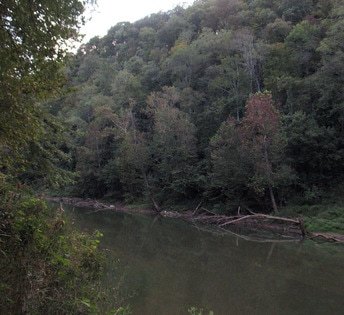Partnerships Are Key to Success in Conservation of Land, Water, and Environmental Resources1/19/2017 A basic precept I learned long ago and repeatedly experienced during my forty-year career in land and biodiversity conservation in North Carolina and the southern U.S. confirms that most conservation successes are the result of committed leadership combined with collaborative partnerships among private organizations and public agencies that recognize shared goals and mutual benefits. Seldom have I witnessed a major success in environmental resource conservation that was not achieved through the advocacy of a few dedicated, individual leaders in combination with the support of a coalition of private and public agencies who share a sense of common purpose and mutually held goals. Most successful leaders recognize the power of collaboration and partnership.
But whereas there have been numerous examples of collaborative partnerships among land OR water OR wildlife conservation organizations, coalitions of shared interests across artificial dividing lines between land/water/wildlife conservation have been slower to develop. . . . We too often work in isolation—in self-segregated and uncoordinated efforts—to conserve natural lands and wildlife habitats, protect rivers and estuaries, and establish public parks and nature reserves. Failure to coordinate efforts in cooperative alliances diminishes our ability to protect and conserve more of our land and water resources. With limited financial and human resources, and seemingly overwhelming forces threatening our environmental assets, it is necessary for those of us concerned with saving and defending the best, most critical, most fragile, most endangered of our natural resources to work more closely together in partnerships, collaboration, and coalition so as to increase our odds of success.
I believe we too often miss opportunities in land conservation and water resource protection by failing to work in stronger collaboration, communication, and alliance among private and public efforts to conserve and protect land, water, and wildlife resources. There has been no “umbrella” or coordinating entity serving the function of networking the various land and water and wildlife conservation groups working across the state or larger region. And the national associations of land or wildlife or river protection groups seldom work cooperatively and almost never attempt to integrate their program efforts, let alone to coordinate activities among their local member organizations. I am heartened in now seeing more broadened efforts toward collaboration-building displayed among the current generation of land-water-wildlife conservation practitioners. A few current examples are the partnerships formed around protecting water quality and water-dependent ecological resources in the Chesapeake Bay basin, the ACE Rivers basin of coastal South Carolina, the upper Neuse River and lower Cape Fear River basins of North Carolina. --Chuck Roe, Southern Conservation Partners President
2 Comments
7/20/2018 02:15:20 pm
I really like what you said about how we miss opportunities in land conservation and water resource protection by not working in stronger collaboration, communication, and alliances. I had never thought about how isolated some conservation efforts can be and how different groups could work together and really benefit from that. Thank you for the information about seeking out other conservation groups to work with to save all the various land, water, and wildlife where we live.
Reply
Leave a Reply. |
When we see land as a community to which we belong, we may begin to use it with love and respect.... Conservation, viewed in its entirety, is the slow and laborious unfolding of a new relationship between people and land." There is in fact no distinction between the fate of the land and the fate of the people. When one is abused, the other suffers. From the PresidentSCP President Chuck Roe looked at land conservation along the route of John Muir's "Southern Trek." About ViewpointThis blog offers views of our Board and partners. We invite your viewpoint on the following questions: Archives
April 2024
Categories
All
|


 RSS Feed
RSS Feed